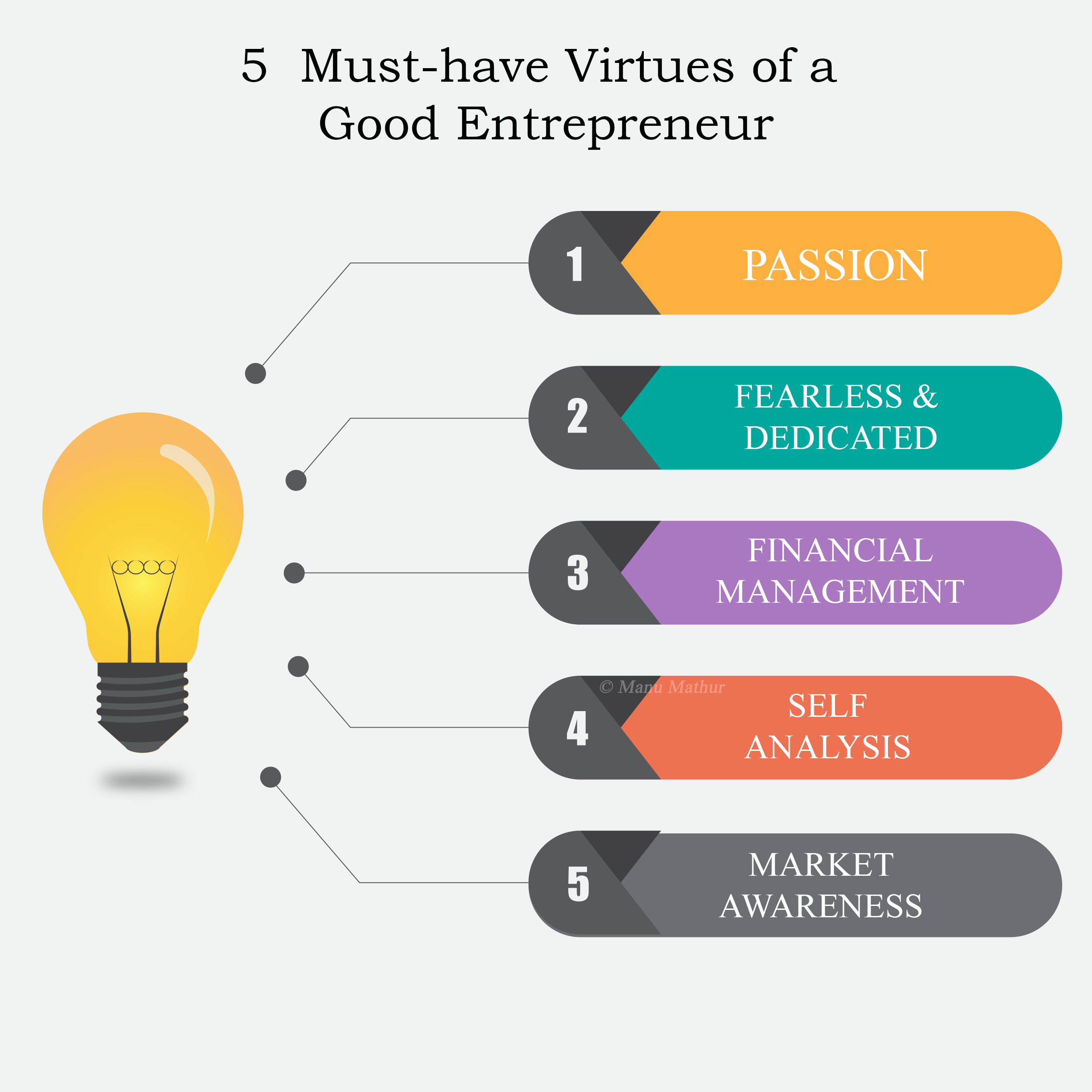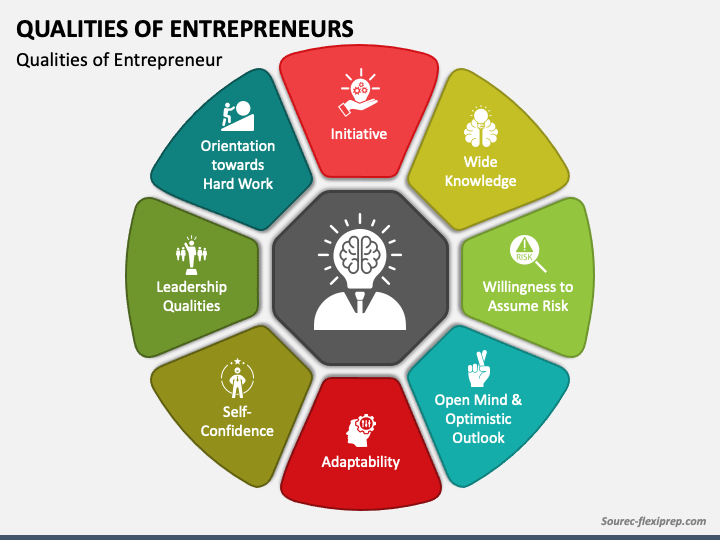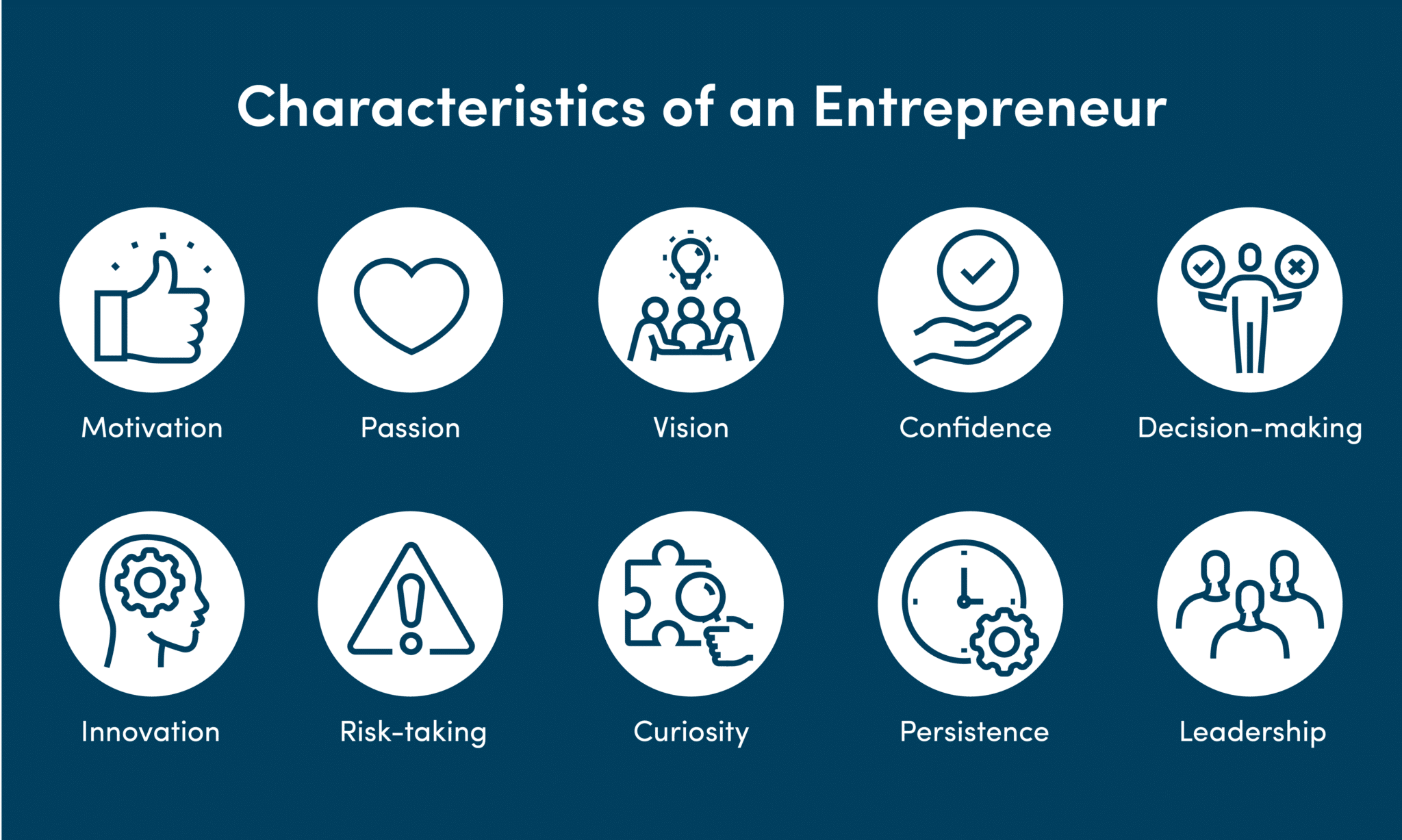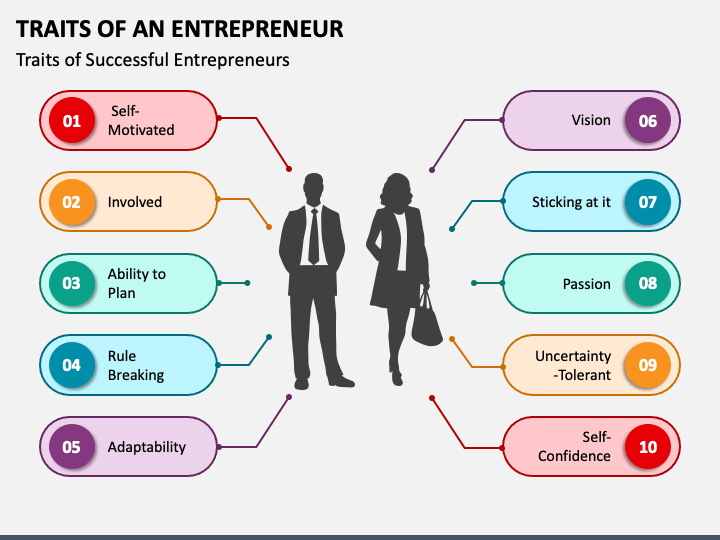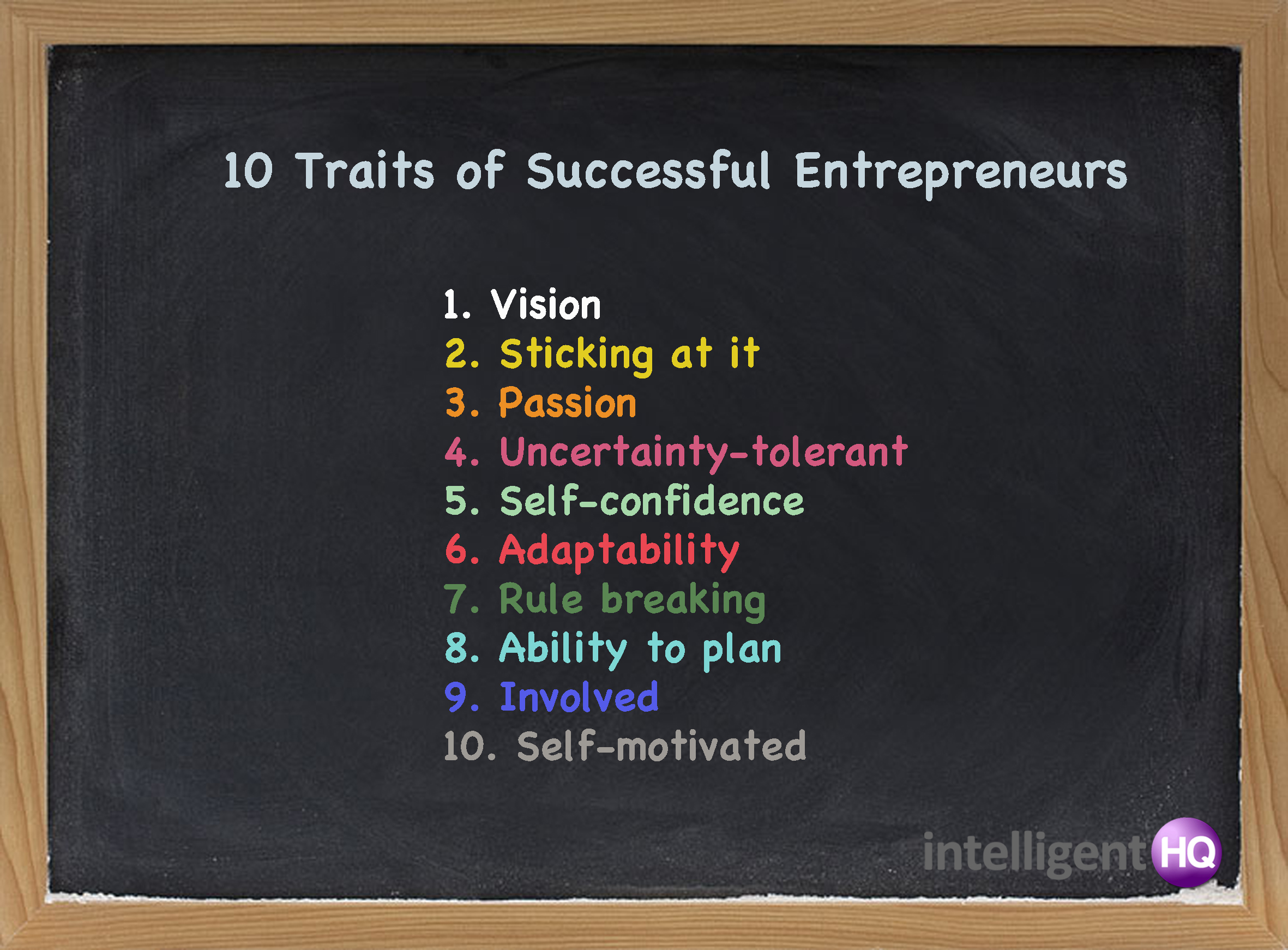Qualities Of A Successful Entrepreneur

In an ever-evolving global marketplace, the entrepreneurial spirit continues to drive innovation and economic growth. But what exactly are the defining characteristics that separate successful entrepreneurs from those who struggle to find their footing? Understanding these qualities is crucial for aspiring business owners and for fostering an environment that encourages entrepreneurial success.
This article explores the key attributes identified by experts and research, highlighting the essential ingredients for navigating the complex world of startups and business ventures. Examining these traits provides valuable insights for anyone looking to embark on their entrepreneurial journey or support those who do.
Key Qualities of Successful Entrepreneurs
Numerous studies and analyses have attempted to pinpoint the exact formula for entrepreneurial success. While there's no single magic bullet, several consistent qualities emerge as vital assets. These range from innate personality traits to learned skills and strategic approaches.
Resilience and Perseverance
Perhaps the most frequently cited quality is resilience. The path to success is rarely smooth, and entrepreneurs inevitably face setbacks, failures, and unexpected challenges. According to a 2023 report by the Small Business Administration (SBA), almost 20% of new businesses fail during the first two years of being open, and 45% fail during the first five years.
Entrepreneurs must be able to bounce back from these difficulties, learn from their mistakes, and maintain their motivation in the face of adversity. This involves a growth mindset, viewing failures not as defeats but as opportunities for learning and improvement. They must possess unwavering perseverance in pursuing their goals, even when the odds seem stacked against them.
Vision and Innovation
A clear vision is another cornerstone of entrepreneurial success. Successful entrepreneurs have a strong understanding of the problem they are trying to solve and a well-defined idea of how their product or service will meet that need. This vision often involves innovation, finding new and creative ways to address existing problems or capitalize on emerging opportunities.
As Peter Drucker, a renowned management consultant, once said, "The best way to predict the future is to create it." This proactive approach to shaping the market distinguishes entrepreneurs from mere followers. They're able to identify untapped potential and develop innovative solutions that disrupt existing industries or create entirely new ones.
Risk-Taking and Adaptability
Entrepreneurship inherently involves risk. While some risks are calculated and strategic, others are unavoidable in the volatile business environment. Successful entrepreneurs are not afraid to take calculated risks, but they also understand the importance of mitigating potential downsides.
Coupled with risk-taking is adaptability. The business landscape is constantly changing, and entrepreneurs must be able to adjust their strategies and approaches in response to new information and market trends. This requires a willingness to learn, experiment, and embrace change.
Strong Communication and Interpersonal Skills
Effective communication is essential for building relationships with customers, investors, employees, and partners. Entrepreneurs must be able to clearly articulate their vision, persuade others to believe in their ideas, and build strong, collaborative teams.
Interpersonal skills, such as empathy, active listening, and conflict resolution, are also crucial for managing relationships and fostering a positive work environment. Richard Branson, founder of the Virgin Group, has frequently emphasized the importance of treating employees well and building a supportive company culture.
Financial Acumen and Strategic Thinking
A solid understanding of financial principles is critical for managing cash flow, securing funding, and making informed investment decisions. Entrepreneurs don't necessarily need to be accountants, but they should have a grasp of key financial metrics and be able to interpret financial statements.
Furthermore, strategic thinking is essential for developing a long-term business plan and making sound decisions about resource allocation, market entry, and competitive positioning. Entrepreneurs must be able to see the big picture and anticipate future trends.
The Impact of Entrepreneurial Success
The success of entrepreneurs has a ripple effect throughout society. New businesses create jobs, stimulate economic growth, and drive innovation. According to the US Census Bureau, new firms account for nearly all net job creation.
Furthermore, entrepreneurial ventures often introduce new products and services that improve people's lives and address societal challenges. By fostering an environment that supports and encourages these qualities, societies can reap the benefits of a thriving entrepreneurial ecosystem.
Ultimately, the qualities of a successful entrepreneur are not just about building a business; they are about creating a better future.



